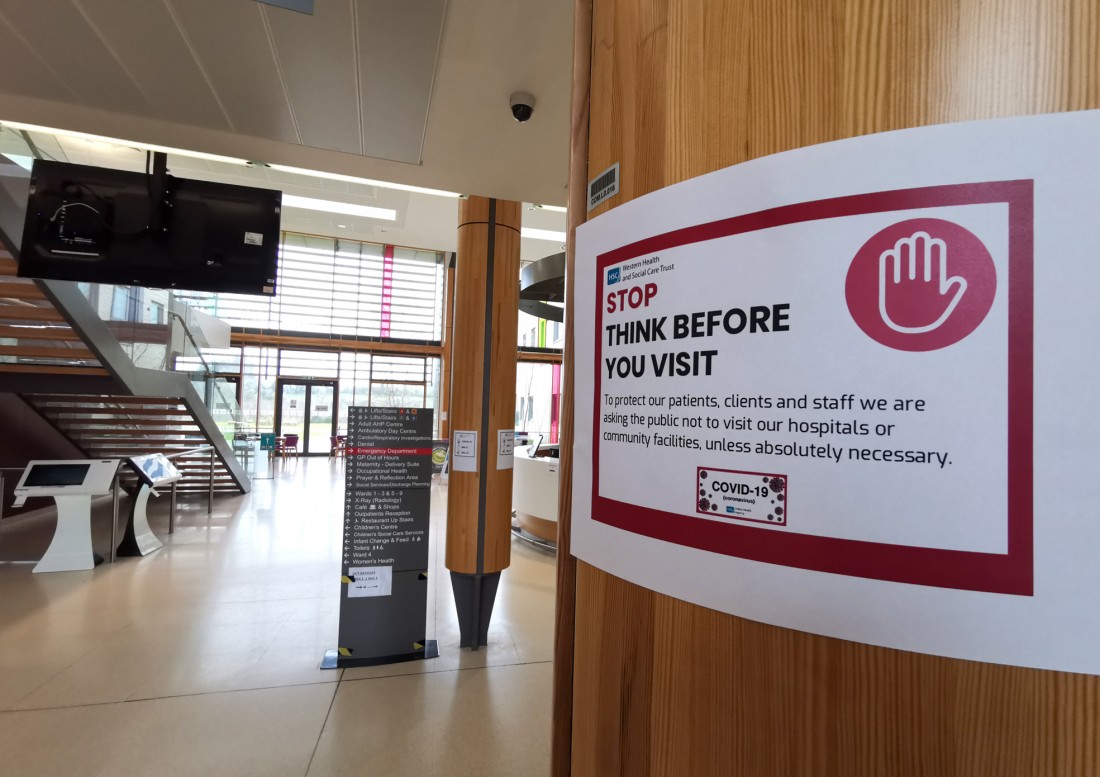IT WAS very much a case of all quiet on the Western Trust front at SWAH yesterday morning, as the hospital gears up to deal with an influx of patients due to the Covid-19 epidemic.
With all routine appointments and out patients procedures currently on hold as the Trust frantically plans for what is to come, there was an eerie silence at the usually busy hospital when the local press were invited in for a briefing with director of acute services, Geraldine McKay, and assistant director Professor Ronan O’Hare.
The pair told the Herald the Trust are currently working around the clock to prepare. Among the major elements of the it’s battle plan is increasing hospital capacity, working with the community and voluntary sector, and training and preparing staff for the expected influx in patients. This will include bringing back out of non-frontline roles.
Prof O’Hare did not rule out calling in extra staff, such as retired nurses, in future either: “It will depend very much on how the hospital is stressed as opposed to dealing with this epidemic. All options are open to us, and it will be planned on a regional basis, how we deal with an increase in patients.”
He added: “The situation is very fluid in relation to all of this. The advice and procedures could be different next week. The important thing is we are prepared and ready for those changes in guidelines and guidance.”
Ms McKay said routine appointments had been cancelled “to make sure clinicians are freed up so they go and train and prepare for the work they will be doing in the next number of weeks.”
“It’s very important patients understand if they need to be seen they will be seen. We have not stood down any red flag or cancer wards, that will obviously keep going,” she added, explaining provision was also being put in place to call some non-urgent patients rather than holding physical appointments.
As for testing, the Trust has said it is still following the guidelines that only those being admitted to hospital will be tested. However this may change in the coming weeks and months.
With regard treatment, Prof O’Hare said that, for now, it is expected critically ill patients will be treated at SWAH, where he said they are planning on increasing ICU capacity.

Calm before the storm as health trust prepares for loom
Posted: 9:34 am March 19, 2020
Posted: 9:34 am March 19, 2020








